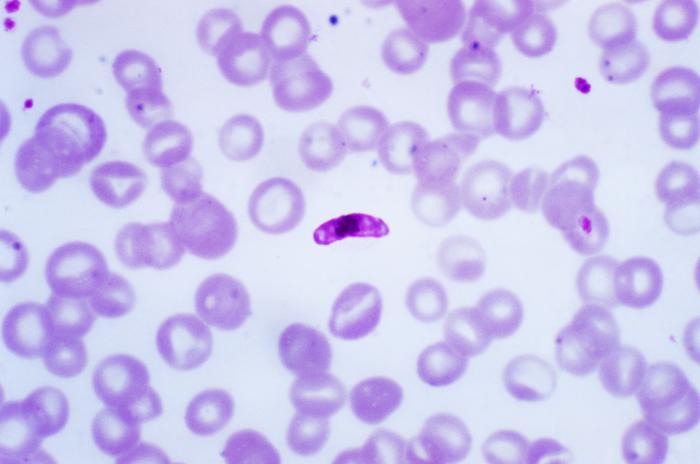Malaria symptoms ruled by microbiome
The severity of a dose of malaria can be determined by the bugs in the bowel, new research has revealed. 
Malaria affects more than 200 million people each year and kills up to a million, two thirds of them children. But why some individuals succumb to much more severe disease than others remains a mystery.
Now a study using laboratory mice suggests that certain bowel bacteria might be the answer. University of Tennessee scientist Nicolas Villarino and his colleagues, writing in PNAS, ordered batches of mice but from several different US suppliers.
The animals, they found, despite being almost genetically identical, had dramatically different susceptibilities to challenge with a strain of malaria called Plasmodium yoelii.
While all of the mice were infected, those from certain suppliers developed only low levels of malaria parasites in the bloodstream, while mice from other sources developed much more severe disease.
The Tennessee team ruled out diet as a cause and then turned to the microbes inhabiting the mouse intestines as a cause. Because the animals had come from different suppliers, they were colonised with different strains of microorganisms.
By using DNA techniques to compare what bugs were living in which mice and subtracting what was common to both, the team found that bacterial strains known as Bifidobacteria and Lactobacilli were more heavily represented in the mice that were most malaria resistant.
In subsequent experiments, they showed that mice reared initially to lack bowel bugs before being colonised by bacteria from either "malaria susceptible" or "malaria resistant" mice inherited the same pattern of malaria susceptibility as their gut bug donor had.
Also, animals given antibiotics to clear their natural microbial flora before being fed yoghurt to colonise them with Bifidobacteria and Lactobacilli, were 14 times less malaria susceptible.
The researchers don't yet know what accounts for the difference, but they speculate that the intestinal microbes are either directly manipulating the mouse immune system to alter its ability to respond to malaria, or they are suppressing the growth of other microbes that might instead make he animals malaria susceptible.
It's also possible that both theories are correct. The findings also resonate with observations among human malaria victims, where previous studies have shown that children in a rural African village in Burkina Faso have a bowel bacterial spectrum that resembles the community structure seen in the susceptible mice.
Because the two are so similar, this "suggests the possibility that probiotic modulation of the gut microbiota in mice to control severe malaria may work in humans," the researchers speculate.





Comments
Add a comment